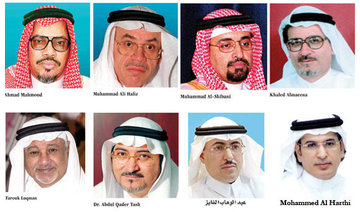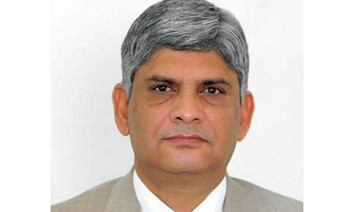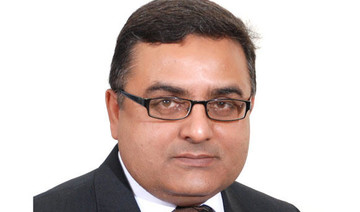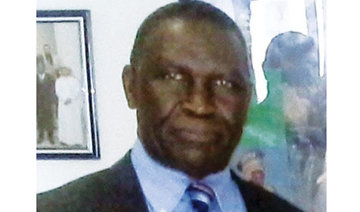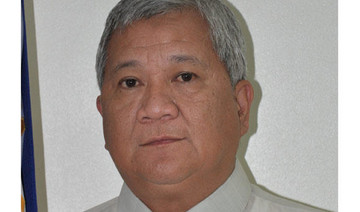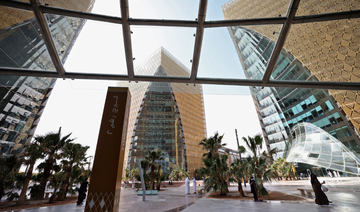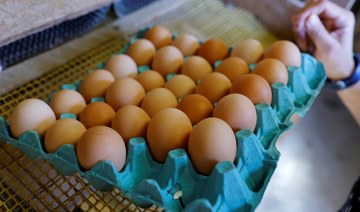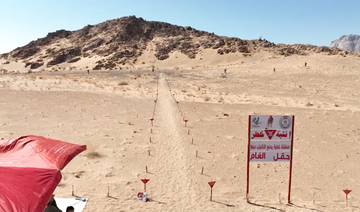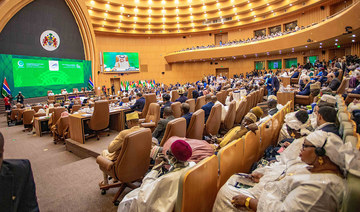On Jan. 4, 2013, as the newspaper was being put to bed, the newly-appointed editor in chief scrutinized the Front Page. The lead story was about Iraq, another on the Palestinian issue, and an anchor about American employment data. The rest of the Front Page was taken up by stories about Patriot missiles in Turkey and Haj and Umrah revenues.
Editor in Chief Mohammed Fahad Al-Harthi was visibly unhappy. He called in all the senior editors and reporters and issued a sharp diktat: “We need to focus on what’s happening here and now, in this country. We are this country’s window to the world. We want the Arab News Front Page to reflect on events happening in Saudi Arabia.”
That was the start of what we now call in the newsroom the “new look, new direction.” That was the last day we had a Front Page dominated by international stories. Since then, as a rule, the Arab News Front Page has had mostly local stories, a decision warmly welcomed by our readers and begrudgingly followed by our competitors.
The reasoning is simple. If an Indian reader wants to know what is happening in his country, he would not wait for Arab News to tell him. He would instead log on to an Indian newspaper’s website or tune into Indian television channels.
This applies to Pakistani, Sri Lankan, Bangladeshi, and all other expatriates. When they open an edition of Arab News, they want to have news about what is happening around them, how the new labor laws are going to affect them and their families, and information on inflation and the impact on their finances. And most important, they want to know what Saudi men, women and young people think about events and issues in the own country and abroad.
There are several important areas all expatriates want to know about: What kind of developments are taking place inside Saudi Arabia? How will those massive projects in Makkah and Madinah make life easier for Umrah and Haj pilgrims? When will the trains start running between the various cities? They want to know about laws and regulations affecting the education of their children at community schools, and how teachers can hold onto their jobs in the face of the new Nitaqat rules.
Arab News had to reorient its thinking. In the past, we took ourselves very seriously as an international newspaper. Our local coverage was confined to Page 2, or at the most Page 3. The primary focus was on stories generated by the Saudi Press Agency (SPA), the country’s official news agency. There was all the news about ministries and government departments. And then we had news about community events: Filipinos and Sri Lankans had their own labor and other issues, while Pakistanis and Indians had their poetry gatherings and reports about school management committees. This all changed drastically under the new philosophy of thinking globally and focusing locally.
Under this new orientation, the newspaper expanded its local coverage. The number of pages was justifiably increased. More reporters were hired. More translators and copy editors were pressed into service to get the most out of what the local Arabic newspapers were reporting. There was a constant effort to get follow-up stories being reported in local media.
Increasingly, Arab News started competing with local Arabic newspapers. As a result of this sustained focus on local issues, Arab News remained the benchmark for Nitaqat stories. There was nothing that we did not cover. The issues that diplomats faced at the Passport Department to get their nationals fingerprinted were reported on our Front Page. The problems that illegal workers faced on their way back home were widely highlighted. The response from the government and other agencies was also highlighted with a view to keeping our expatriate readers informed about the latest rules and regulations.
At a meeting in Jeddah of various diplomats at the height of the Nitaqat campaign, the one common refrain about all the issues under discussion was: “This has been reported by Arab News, that was reported by Arab News.” We remained the primary source of news for diplomats and ordinary readers alike. During the period covering the Nitaqat system’s enforcement, our sales jumped dramatically, because people wanted to know. If there was a rumor circulating in the community, our readers would come to us for clarification. And Arab News was there, acting as a bridge between the English-speaking expatriate communities and government departments.
In the newsroom, the whole reporting dynamic has changed. In the past, we could sit on a story forever. We would take our time in confirming it by trying to contact officials. However, with Facebook and Twitter, journalists came under intense pressure to deliver news in real-time. News as it broke. The challenge for Arab News was to maintain its credibility and deliver authentic information. Information that our readers have come to expect from us. The new tools of information dissemination were like a double-edged sword. We had instant reactions to stories but at the same time, the challenge was to verify if the accounts were genuine. There is so much false and uncorroborated information on the Internet.
The advantage of Twitter and Facebook is that we instantly know about the breaking stories, and what people are thinking about them. In the past, reporters had a hard time getting the contact details of experts. Now, it is just a matter of searching for the Twitter handle or the Facebook page of the right person and you can have his reaction in no time.
At Arab News, there is now robust local coverage. Crime stories, social events, campus developments, community events, diplomatic activities, and business dealings. Everything is covered in an in-depth way. In this day and age, we have ensured that the language is simple, so that there is no room for misunderstandings.
The new elements that you will come across in this newspaper in the coming days will give you an idea of what direction we have taken, and why. It is simply an attempt, backed by much planning and thought, to provide a window into the heart of Saudi Arabia.
Window into the heart of Saudi Arabia
Window into the heart of Saudi Arabia
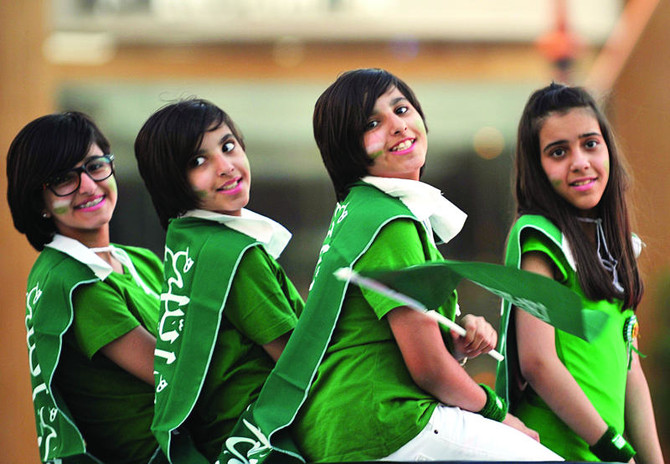
Saudi Arabia sees 30% drop in work injuries
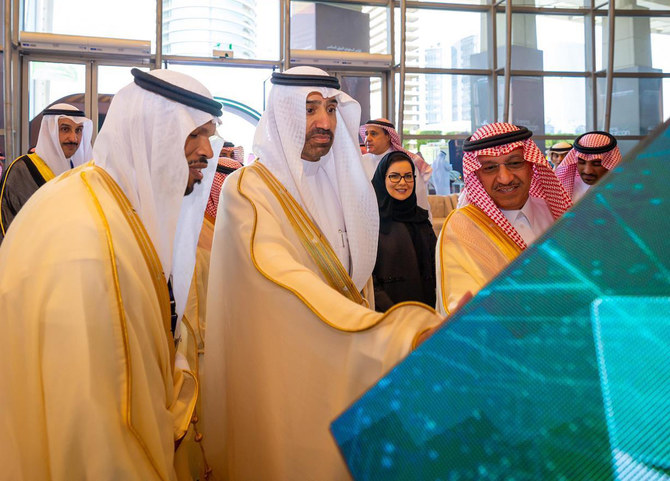
- Saudi minister launches platform for reporting and investigating workplace incidents
RIYADH: Saudi Arabia’s commitment to occupational safety and health has seen the rate of work-related injuries in the Kingdom drop from 416 to 288 injuries per 100,000 workers, over the past few years, marking a notable 30.7 percent decrease.
At the same time, the compliance rate among establishments with occupational safety and health standards has risen to 71.27 percent.
This progress was highlighted by Saudi Minister of Human Resources and Social Development Ahmed Al-Rajhi as he inaugurated the sixth Saudi Global Conference for Occupational Safety and Health in Riyadh on Sunday, signaling a promising future for worker safety in the country.
The forum, which runs until May 7 under the theme “Scanning the Horizon,” covers five main topics: sustainability, corporate safety, technological transformation, cultural awareness, and occupational health.
Al-Rajhi, who is also the chairman of the National Council for Occupational Safety and Health, highlighted the remarkable progress Saudi Arabia has made in the OSH sector in recent years.
He attributed this success to the collaborative programs and initiatives launched in conjunction with Saudi Vision 2030, aimed at creating a vibrant society and building a diverse and sustainable economy.
Al-Rajhi noted that through the national policy on occupational safety and health, the Kingdom aims to strengthen and develop the OSH sector, promote and protect workers across various workplaces at the national level, in line with local regulations and international treaties and agreements, and implement the best global practices suitable for the labor market.
The minister launched the official website of the National Council for Occupational Safety and Health, and mentioned the e-training platform for OSH, as well as the platform for reporting and investigating work-related accidents, injuries, and occupational diseases.
Al-Rajhi praised the council for its dedicated efforts and the collaborative contributions of various sectors within the council and the broader OSH system.
The achievements in the OSH sector were bolstered by the enactment of several pieces of legislation aimed at raising awareness of occupational safety and health issues, notably through the strategic implementation of the national occupational safety and health program, the Saudi Press Agency reported.
Key legislative measures include the issuance of administrative regulations related to OSH and the development of a comprehensive national policy in collaboration with the International Labor Organization and all stakeholders. This policy, endorsed by the Council of Ministers, ensures its integrity and reliability, with careful monitoring and follow-up on implementation, according to the SPA.
Al-Rajhi inaugurated the exhibition accompanying the conference and toured various partner pavilions, sponsors, and participating entities. Among these were the pavilions of the General Organization for Social Insurance and Saudi Aramco.
Riyadh expo to showcase poultry innovations

- Exhibition is the largest in the poultry industry and will feature over 300 companies from 40 countries
- More than 800 products from the poultry industry’s supply chain will be exhibited
RIYADH: “Value Engineering” is the theme of the third Middle East Poultry Expo, to be held at Riyadh International Convention and Exhibition Center from May 13-15.
Sponsored by the Ministry of Environment, Water and Agriculture, the exhibition is the largest in the poultry industry and will feature over 300 companies from 40 countries, the Saudi Press Agency reported.
The event will bring together international companies and experts in the poultry industry and showcase the latest technologies and innovations in poultry breeding, production, animal health and the feed industry.
It aims to promote the use of modern technologies, foster the exchange of experiences and best practices, develop the poultry industry, enhance investment opportunities, and contribute to gross domestic product growth to achieve national food security objectives, according to SPA.
More than 800 products from the poultry industry’s supply chain will be exhibited with the goal of promoting trade, encouraging scientific exchange and building business networks in the largest poultry markets in the Middle East and North Africa.
Those taking part include government bodies and institutions, associations, companies and nonprofit organizations in the livestock sector.
The three-day exhibition will also feature the Poultry Knowledge Planet Seminar, featuring experts from major international companies, and a number of scientific lectures.
Saudi project clears 719 Houthi mines in Yemen
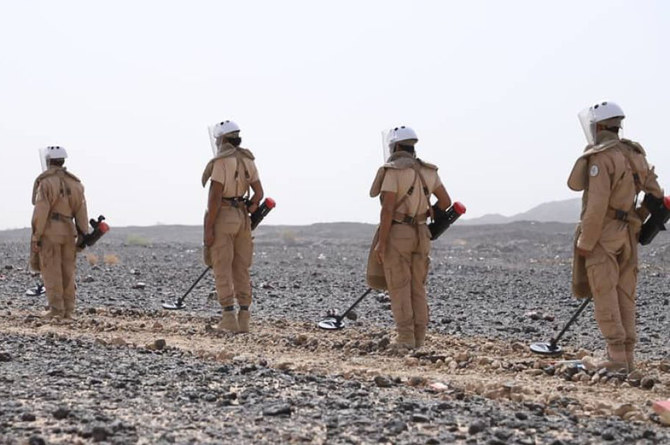
RIYADH: Saudi Arabia’s Project Masam cleared 719 mines in Yemen — which had been planted by the Houthi militia — between April 27 to May 3, according to a recent report.
Overseen by the Kingdom’s aid agency KSrelief, the project’s special teams destroyed 631 pieces of unexploded ordnance, 83 anti-tank mines, three improvised explosive devices, and two anti-personnel mines.
The explosives, which were planted indiscriminately by the Houthis across Yemen, posed a threat to civilians, including children, women and the elderly.
Project Masam is one of several initiatives undertaken by Saudi Arabia at the request of King Salman, which has cleared routes for humanitarian aid to reach the country’s citizens.
The demining operations took place in Marib, Aden, Jouf, Shabwa, Taiz, Hodeidah, Lahij, Sanaa, Al-Bayda, Al-Dhale and Saada.
A total of 439,132 mines have been cleared since the start of the initiative in 2018, according to Ousama Al-Gosaibi, the project’s managing director.
The initiative trains local demining engineers and provides them with modern equipment. It also offers support to Yemenis injured by the devices.
About 5 million people have been forced to flee their homes since the beginning of the conflict in Yemen, many of them displaced by the presence of land mines.
Masam teams are tasked with clearing villages, roads and schools to facilitate the safe movement of civilians and the delivery of humanitarian aid.
GCC chief stresses Islamic unity at OIC summit

RIYADH: Jasem Albudaiwi, secretary-general of the Gulf Cooperation Council, said that member countries value their Islamic roots and aim to strengthen ties with other Islamic nations at all levels.
“The GCC countries have always extended their hands for cooperation and to establish fruitful partnerships with all Islamic countries, believing in the importance of this deep connection derived from our culture, religion and prophetic tradition.”
He made the comments Saturday during the 15th session of the Islamic Summit Conference in Banjul, the capital of Gambia.
Delegations from the 57 OIC member states attended the conference, organized by the Organization of Islamic Cooperation under the theme “Enhancing unity and solidarity through dialogue for sustainable development.”.
In his speech, Albudaiwi, said: “Today, we gather while the world is facing numerous and escalating challenges. In light of these dangerous developments, the role of the GCC and the OIC as two active forces to confront the multiple crises in our region and the world as a whole becomes prominent.
“The common challenges we face require collective action and solidarity to promote the values of peace and prosperity, particularly considering what Palestine and the Gaza Strip are subjected to — a brutal attack by Israeli occupation forces.”
Albudaiwi also highlighted the key outcomes of the extraordinary Arab-Islamic joint summit held in Riyadh last year. This meeting led to the creation of a ministerial committee to travel the world, seeking to aid and protect the Palestinian people in Gaza by reducing violence, safeguarding civilians, and reviving peace initiatives.
He praised the role played by this committee in stopping the aggression in the Gaza Strip, a role that is aligned with those of the GCC and other Arab and Islamic organisations.
The GCC chief noted that after more than 211 days, the Palestinian people in Gaza continue to suffer from the ongoing violence perpetrated by the occupying forces, with 35,000 people — mostly children and women — having died at an average rate of 165 deaths per day.
He also pointed out the significant threats to security and stability, especially because the escalating crises in the Middle East are linked to the turmoil in Palestine and Gaza.
“The ongoing Israeli aggression requires us all to renew our commitment to collective and responsible action in supporting the Palestinian people and their legitimate rights,” he said.
Albudaiwi also emphasized the need to prioritize sustainable development in the agendas of the GCC and the OIC. “It requires all of us to work together to address the environmental and economic challenges that affect our countries and peoples. Additionally, we must enhance cooperation in the fields of science, technology, and innovation to support sustainable development projects.”
Metal bands battle it out in Jeddah

- Saudi band Wasted Land emerged as champions of the 2024 Wacken Metal Battle Middle East
JEDDAH: Wacken Metal Battle Middle East arrived in Jeddah’s Makan Music Center on Friday night, providing a platform for local metal bands to showcase their musical prowess.
The battle of the bands event featured Jaheem, Volfram, Kaizer, and Wasted Land aiming for top spot, creating a memorable experience for regional metal fans.

Wacken Metal Battle Middle East — supported by the German Consulate in Jeddah and European Weeks in Saudi, and a competition connected with Germany famous Wacken music festival — featured a jury of music experts and international guests, including judges from Germany, who evaluated the bands based on technical ability, song composition, and musical interpretation. They also took into account the band’s uniqueness, stage presence, audience interaction, execution of sound checks, communication, punctuality, and overall attitude.
HIGHLIGHTS
• Wacken Metal Battle Middle East was supported by the German Consulate in Jeddah and European Weeks in Saudi Arabia, and a competition connected with Germany’s famous Wacken music festival.
• Saudi band Volfram described the night as a ‘unique and unforgettable experience.’
The jury selected Wasted Land as the champions of the competition, meaning they now have the chance to perform at the Wacken festival, which takes place annually in Hamburg. Adding to the excitement, the winners of the 2023 event, Egyptian band Erasing Mankind also took to the stage as guest performers.

Promoter Monika Bremer said, “Since its inception 10 years ago, Metal Battle Middle East has provided numerous emerging bands with the opportunity to showcase their talent and advance their careers. This anniversary edition is an important milestone for the regional metal scene.
“Thanks to the support of our partners, emerging metal bands have the opportunity to participate in this competition and gain valuable experience,” she added.
Emad Ashor, guitarist and vocalist of Jeddah-based death metal outfit Immortal Pain and one of the judges at the event, said, “Talent, passion, and professionalism are key. This platform allows all bands to explore new experiences and pursue their dream of victory.”
Karim Mounir, composer and bassist of Erasing Mankind, who was also a judge at the event, said: “Wacken is all about embracing the present moment and fostering camaraderie between bands and the audience. Live performances truly distinguish bands, and the Saudi metal scene’s exceptional talent and musicianship have demonstrated their worthiness for such a significant event.
“The band that can most effectively captivate Wacken’s lively and inclusive crowd would be a perfect representative from the Middle East.”
Saudi band Volfram described the night as a “unique and unforgettable experience.”
Reflecting on the band’s journey to the final of the Wacken Metal Battle, a member of Kaizer said, “Being part of this competition is an honor in itself, and sharing the stage with incredible bands is an experience we will always treasure.
“Kaizer is just beginning and has so much more to offer. Our goal is to represent the Saudi metal scene in the most intense and impactful way possible. Earning the title of Jeddah’s Heaviest Music from the crowd is a recognition we deeply appreciate.”


